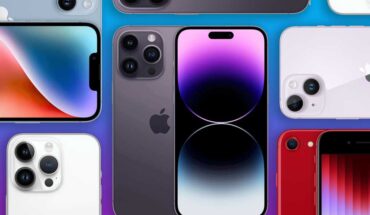Expert’s Rating
Pros
- Good, detailed 4K image in good lighting
- “Eye contact” arm is a key selling point
- Well Constructed, save for the camera arm
Cons
- No privacy shutter
- Poor noise cancellation
- Arm is a little flimsy
- A little awkward when used on a laptop
Our Verdict
iContact’s Camera Pro is one of a tiny number of cameras that places the camera in your sightline to enable “eye contact.” It’s a good 4K camera in good lighting, but poor noise cancellation and the lack of a privacy shutter holds it back.
Price When Reviewed
This value will show the geolocated pricing text for product undefined
Best Pricing Today
Price When Reviewed
$199.00
Best Prices Today: iContact Camera Pro

$179

$189
The iContact Camera Pro performs decently as an off-the-shelf 4K camera, especially when you factor in its nearly unique ability to put the camera in your line of sight. But there are a couple of shortcomings holding me back from a full-throated endorsement.
iContact didn’t necessarily take its cue from the $129.99, 1440p CA Essential Webcam Flex, but the two webcams share a common element in their design: Both have an arm of sorts that places the small camera in the middle of your screen. As the company’s name suggests, that allows you to place the camera where your subject’s eyes are — engaging them with eye contact.
It’s a subtle change, but an important one, in my mind. People are distracted enough by phones, passersby, and screens, and modern conversations aren’t always with an engaged listener. Eye contact demonstrates interest, and someone you’re speaking to using a webcam like the iContact may respond more positively. It’s worth noting that Microsoft now dedicates one feature of its Windows Studio Effects, Eye Contact, to doing just this. Eye Contact uses AI and a small tweak to the video to make it seem like you’re maintaining eye contact, even if you look away. iContact’s webcam will do it much more realistically.
(This review contributes to and informs our recommendations for the best webcams.)
The iContact Camera Pro is a bit chunky; it measures 5 inches across, with a depth of 3.25 inches. It sticks up about an inch off your display. The top has a small notch for an optional $59 Light Panel, a rectangular lamp (not tested) that replaces a traditional ring light. iContact sells a bundled Camera Pro and Light Panel for $238.
The key metric is the length of the camera arm: 4.25 inches. The arm swings down, bringing the camera into the sight line. The arm is plastic and feels a bit flimsy. The arm’s length is also fixed, which differs from CA’s competing model.
Does that matter? It depends on the display. The arm brought the camera a little low on a laptop and a bit on the high side on my desktop monitor, but it really depends on where you place the video window. It probably won’t be perfect, but the effect will be more lifelike than a typical top-mounted webcam. (When the arm is lifted up in line with the camera’s body, it’s a little off center.)
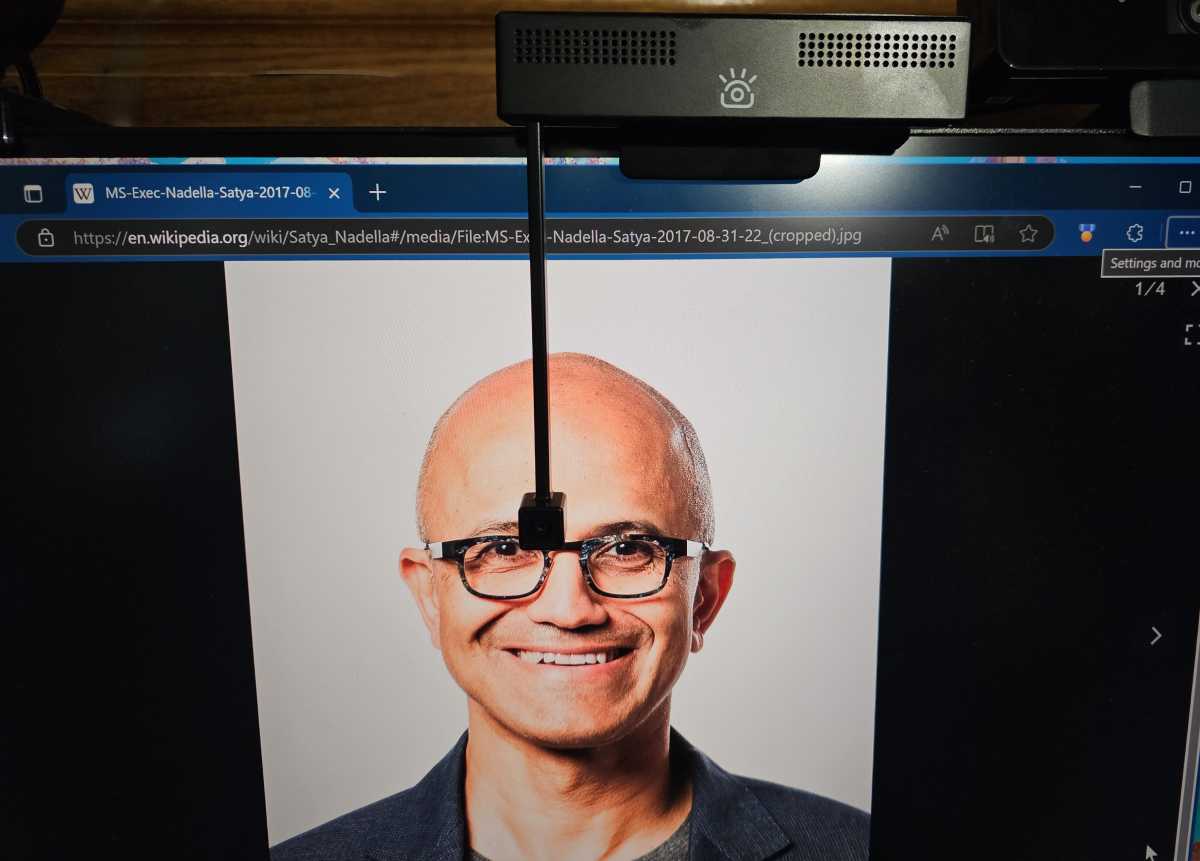
Mark Hachman / IDG
Physically, the webcam isn’t that different from others in the market. A small “tooth” juts over the front of the display, preventing it from sliding backwards. Otherwise, the camera attaches with a flexible “jaw” that opens or closes, like a “>” symbol. iContact uses a rubbery material in the jaw’s construction that cushions it slightly and prevents it from sliding about. That’s less important on a desktop monitor, but makes more sense while propped onto a laptop.
The iContact Camera Pro uses a dedicated 79-inch cord (about 6.5 feet) that comes out of the back of the camera, with a USB-C connector underneath an optional, removable USB-A port adapter. That’s a nice way of adjusting for both ports.
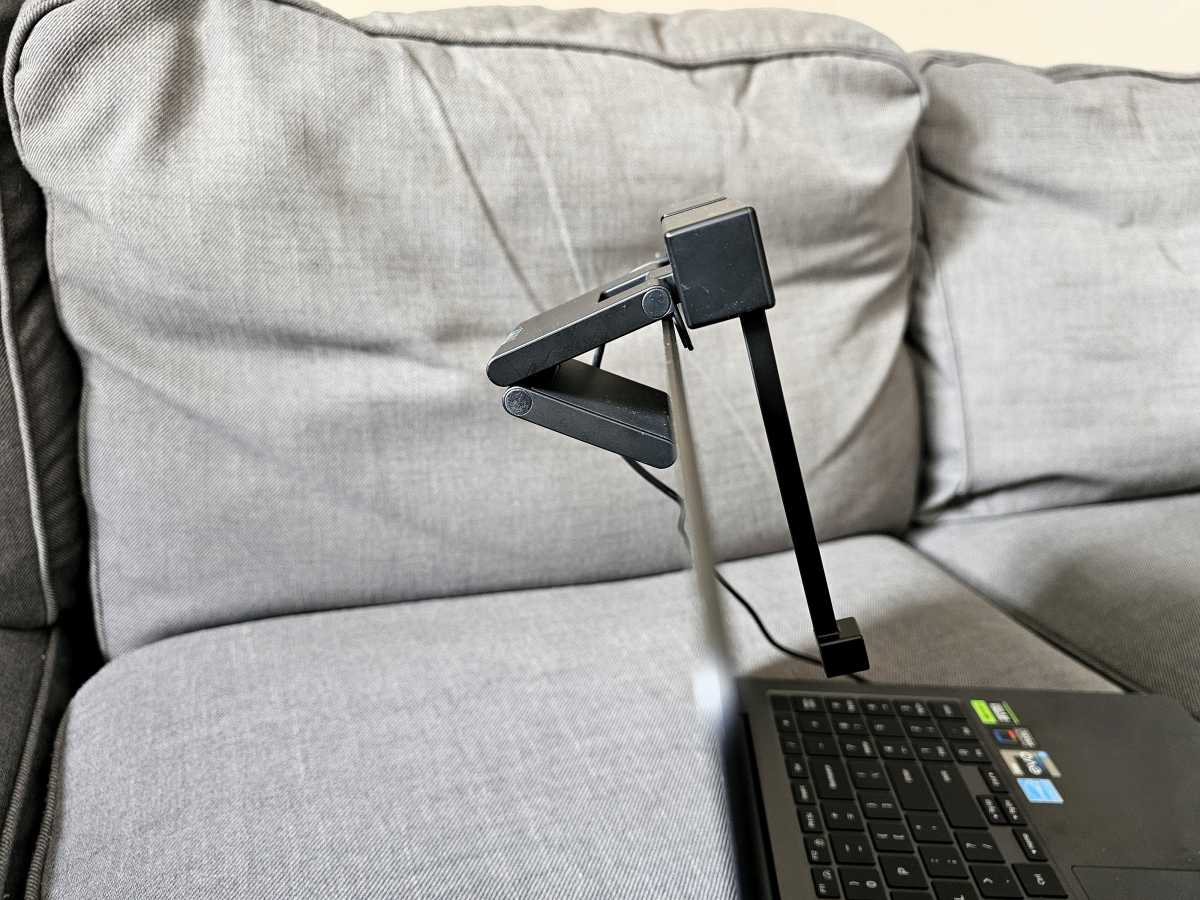
Mark Hachman / IDG
Note that there is no privacy shutter of any kind, which is an important omission. The webcam doesn’t rotate, either. When not in use, the webcam remains pointed at your face, without an LED indicator that shows that it’s on. That’s certainly a black mark. Even worse is that iContact does have a webcam shutter — which it will sell you for an additional $8. That’s just ridiculous.
In practice, I don’t think that the fixed length of the webcam’s arm detracts from its benefits; my eyes couldn’t detect any real difference from placing the webcam directly in the center of my subject’s face upon my screen and having it off a few inches.
This is a true 4K webcam, with autofocus capabilities…though those autofocus capabilities are somewhat poor. iContact’s camera seemed to focus quite well on my hand when I held it close to the camera, but did a poorer job when I simply sat back in my chair and let it work. Weirdly, there doesn’t seem to be any support for Windows Studio Effects at all, even on an Intel Core Ultra 200 (Lunar Lake) laptop in which other webcams provide those capabilities. (I didn’t expect pan and zoom, but I was a little surprised by the lack of blurring effects.)
In fact, there is no utility software at all. iContact provides a special utility (with basic lighting and tint controls) for Mac users, but Windows users will have to use the built-in settings. I’m not totally disappointed in this, as I always wonder about the possibility for malware to ride along inside a utility from unknown webcam makers. But the lack of software does give it a somewhat bare-bones feel.
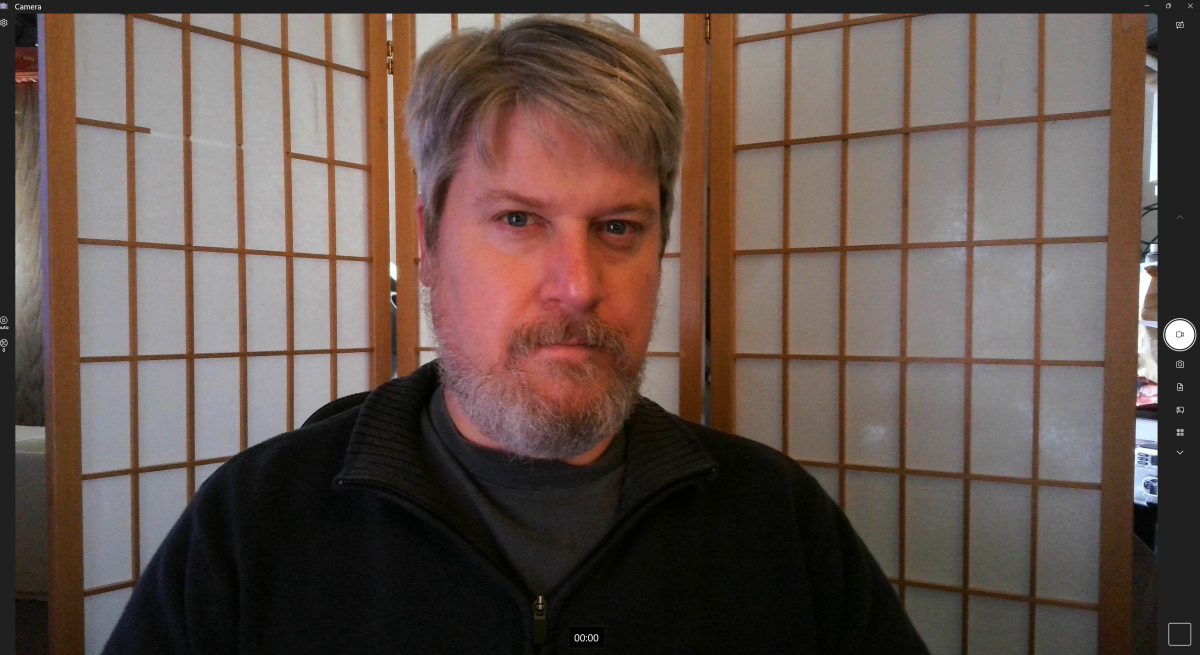
Mark Hachman / IDG
From my basement office, which is often lit primarily by artificial light and light from my display, the iContact webcam does quite well. The 4K webcam captured good detail, and the color balance was good. I usually use a screen as a backdrop in my test shots, but I don’t use that screen in day-to-day use. Behind me is a window, which forces the camera to make a choice: adjust the lighting for my face, or the background? In this case, the iContact camera made the right choice and lit my face properly.
Upstairs, I use my living room with more natural lighting. Again, I want to discover how the webcam fares in good, but not ideal lighting. It looks acceptable to me.
The lack of software does give it a somewhat bare-bones feel.
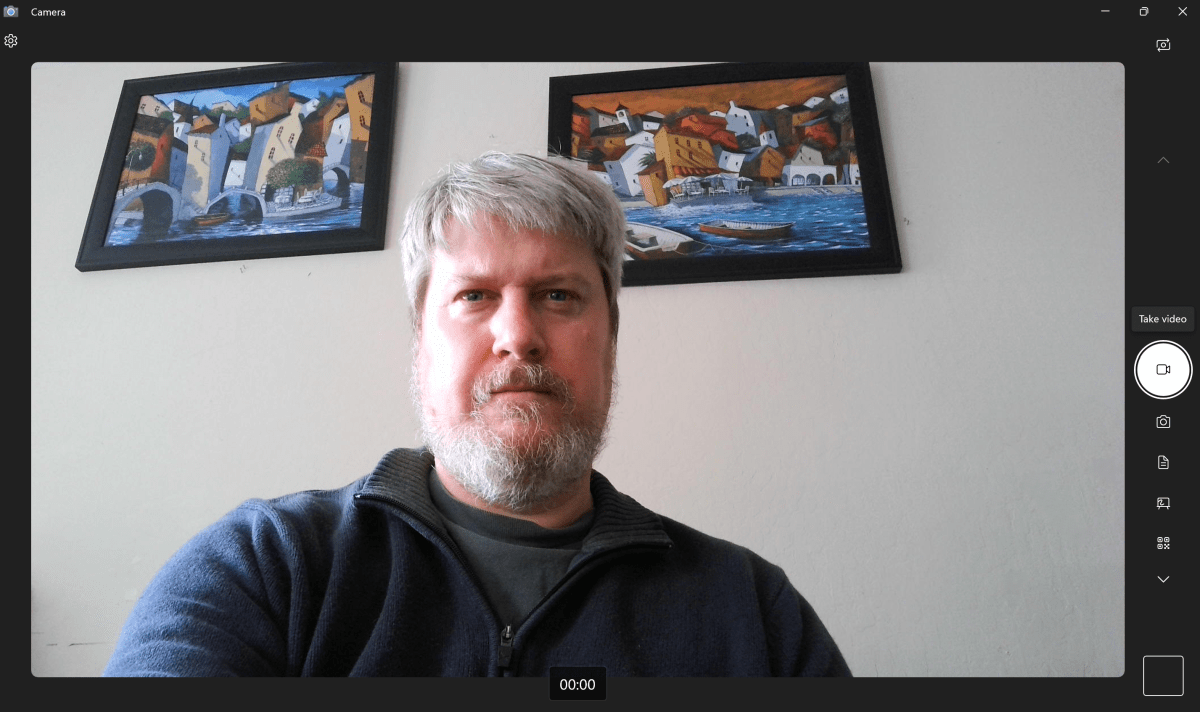
Mark Hachman / IDG
Finally, I tested the noise cancellation on the mics. The mics captured my voice accurately and clearly, but the noise cancellation is lousy. I use the camera’s mic to record my voice, as if I was talking on a voice call. I then play back music, followed by white noise, on my phone, and move it around to test how well those background noises are filtered out. I could be heard clearly over both tracks, but both the music and the sounds of rainfall were very apparent.
Eye contact does make a difference in a conversation, and it’s one reason I liked CA’s webcam as well as this one. As a 4K camera in good lighting, the iContact Camera Pro does the job.
However, the lack of a privacy shutter — and the audacity to upsell you to buy one! — and the poor noise cancellation gives me pause. For $179? It feels overpriced.
For some, the camera’s unique features might make its shortcomings palatable. Personally, though, I’m not sold. I think this needs another iteration and perhaps a price cut, and then I’ll reconsider.


